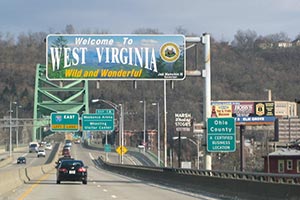Transportation Funding Hike All But Dead in West Virginia

West Virginia bases its fuel taxes on the wholesale price, a policy that cost the state 2.6 cents per gallon of revenue during the past two years.
With the price of fuel below $2 per gallon, Senate Transportation Committee Chairman Chris Walters introduced legislation that raises the state sales tax from 6% to 7%, raises fuel taxes 3 cents, increases various Department of Motor Vehicles fees that mostly have been stable since the 1970s and changes the way taxes on vehicle sales/trade-ins are calculated for a total of $316 million per year in extra funding for transportation.
The Senate approved the bill 25-9 on March 2 without discussion, but members of the House Finance Committee balked on March 7 recommending removing the sales tax hike and questioning the suggested rise in the fees. The next day, Finance Chairman Eric Nelson declared “the support isn’t there to move forward” as he removed the bill from the committee’s agenda.
This after a blue-ribbon commission appointed by Gov. Earl Ray Tomblin recommended an additional $1.13 billion per year for maintenance of the current system as well as for new construction. Removing the latter would still require a $750 million hike, according to the commission, which ran a series of ads and put up billboards touting the importance of transportation funding to West Virginia’s economy and for the safety of its roads and bridges.
“Our industry wanted to be a part of this because safety’s our No. 1 issue, and we’re traveling every day on unsafe bridges and roads that are tearing up our equipment,” said Jan Vineyard, president of the West Virginia Trucking Association and a member of the commission.
Vineyard rated West Virginia’s roads a 2 or 3 on a 1-10 scale with 10 being the best, and said its bridges are in terrible shape. However, the state also is wrestling with a $354 million budget deficit.
In a poll of 400 of the state’s registered voters conducted March 5-6 by West Virginians For Better Transportation, a coalition of more than 300 groups advocating for a long-term transportation funding solution, 75% believe there’s an urgent need to fix the roads and bridges and 60% were in favor of increasing transportation funding.
However, only 22% knew that less than $300 of their annual state tax dollars go to road and bridge repair.




